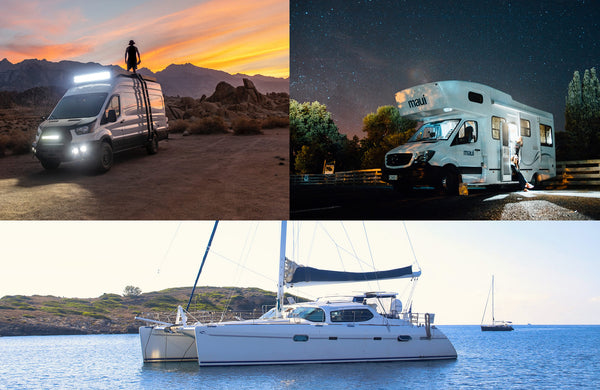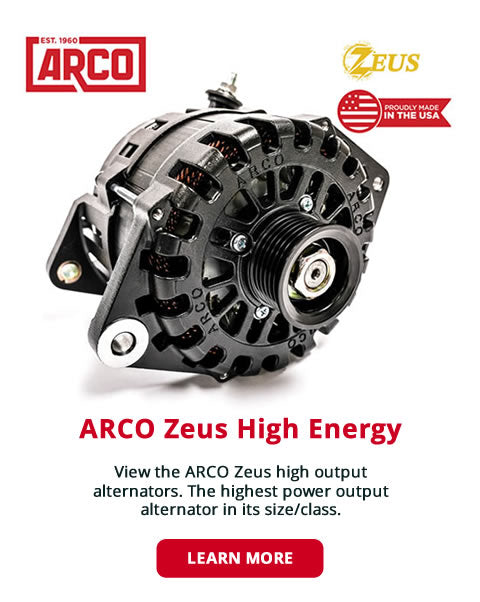
Top Five Reasons To Use An External Regulator
How External Alternator Regulators are Transforming the Boating and RV Industries
Are you considering whether you need an external alternator regulator for your sailboat, RV, or van? In this article, we’ll explore the benefits of this technology compared to standard internal alternators.
External alternator regulators are rapidly gaining popularity in the boating and RV markets. At ARCO, we lead the charge with our innovative ARCO Zeus technology, a true game changer for boat and RV owners.
This article provides an in-depth analysis of the advantages of external alternator regulators, helping you decide if this technology is right for your boat or RV.
Sailboats, RVs, and vans typically come equipped with small alternators that power essential systems like navigation lights, bilge pumps, and VHF radios. However, these alternators often struggle to meet the demands of additional electrical devices such as refrigerators, air conditioners, and toasters, leading to potential overcharging and damage to sensitive electronics.
If you're not using an external alternator regulator, you rely on the internal regulator within your alternator, which has a single voltage setting. This can be problematic due to the varying voltage requirements of different battery chemistries.
External alternator regulators tailor charging voltages to match your specific battery chemistry and offer numerous advantages over internal regulators, including:
1. Temperature Compensated Charging for All Battery Types
All lead-acid batteries, not just lithium, require temperature-compensated charging. Internally regulated alternators lack this feature. Charging voltage needs adjustment based on battery temperature to maintain health and longevity. Without an external regulator, you're stuck with a one-size-fits-all solution.
2. Adjustable Voltage for Specific Battery Needs
Stock internal regulated alternators cannot adjust voltage settings, which can be problematic if your batteries require specific charging parameters. External regulators allow for necessary adjustments, protecting your valuable batteries from degradation.
3. Improved Charging Performance
Internal alternator regulators may fail to accurately sense battery voltage, reducing charging efficiency. This can lead to overcharging or undercharging, both of which shorten battery lifespan. If you're experiencing charging issues, consider adding an external alternator regulator to your setup.
4. Enhanced Alternator Protection
Today's marine and RV setups often have larger battery banks, placing significant stress on stock alternators designed for single starting batteries. External regulators provide crucial protection by monitoring alternator temperature and preventing overheating.
5. Effective Amperage Management
Many boats and RVs still use v-belts, which are prone to slippage. External alternator regulators can limit maximum amperage, reducing slippage and protecting your alternator from damage. For high-amp alternators, consider upgrading to a serpentine belt for improved performance.

Conclusion
In summary, external alternator regulators provide significant advantages over internal alternatives, including temperature compensation, adjustable voltage, improved charging performance, enhanced alternator protection, and effective amperage management. If you want to optimize your battery charging and protect your alternator, consider investing in an external alternator regulator.
The ARCO Zeus High Energy Alternator Regulator features State of Charge and Generator Mode capabilities, giving users unprecedented control over their battery and alternator systems.



